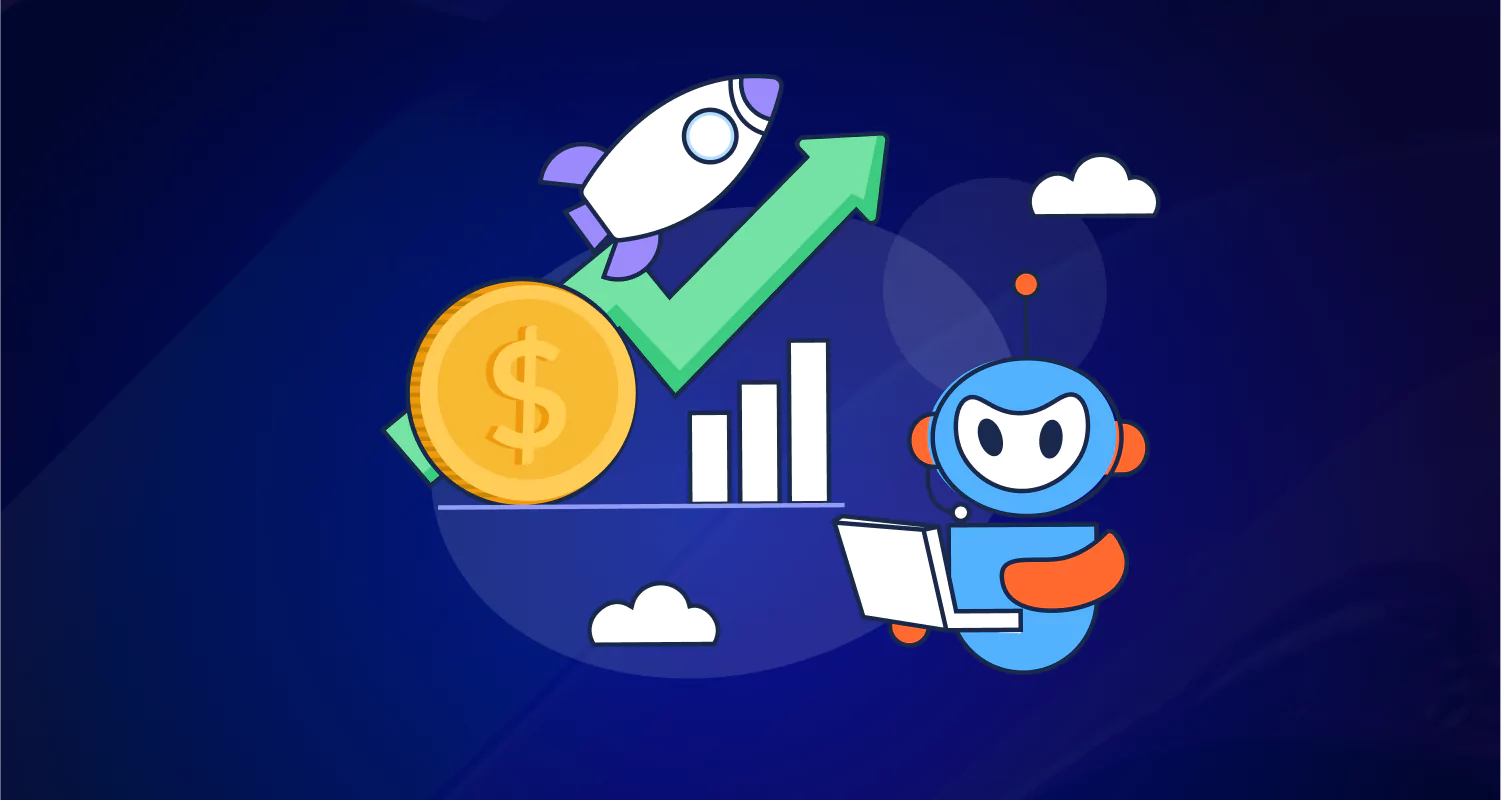Every successful SaaS product is built on a solid foundation of knowledge, both within the organization and for its users.
Today, users expect instant access to the information they need and are less willing to wait for support.
A well-organized SaaS knowledge base allows customers to easily find answers, solve problems independently, and learn more about your product without needing to contact support.
In fact, the faster and more accurately they can find answers, the more likely they are to stay engaged with your business.
Let’s discuss the impacts, examples, and features of a SaaS knowledge base in enhancing customer service.
What is a SaaS knowledge base?
A knowledge base refers to a unified repository of information that helps users easily understand, use and navigate a product.
A SaaS knowledge base is a cloud-based knowledge base that allows businesses to create, host and manage their self-service resources online.
Businesses using a SaaS knowledge base software must pay some subscription fee to access the software and the web hosting services required to publish and maintain their knowledge base online.
Why do SaaS companies need a knowledge base?
Research by Grand view research shows that the global SaaS market should be expected to grow at a compound annual growth rate of 13.7%, between the year 2023-2030.
For any SaaS business, a cloud-based knowledge base is necessary since it’s online and readily accessible 24/7.
As such, it guarantees that both users and internal teams always have essential documentation and support resources for self-service.
With an internal SaaS knowledge base, staff know where to look for any company-related information without needing to consult others.
This includes information such as company policies, standard operating procedures (SOPs), training guides, and more.
For customers, a business needs an external SaaS knowledge base to serve as their self-service repository for information, helping them solve issues independently without needing direct support.
Users can find solutions through troubleshooting guides, FAQs, how-to-videos, and product updates or new features.
Key features of SaaS knowledge base software
SaaS knowledge base software is designed with easy-to-use features, allowing any team, no matter their technical background, to quickly create, manage, and share useful content for customers or coworkers.
Here are some of the features you should consider when choosing a SaaS knowledge base.
User-friendly content editing functionalities
A SaaS knowledge base should have article versioning control to monitor changes in the content, revert to previous versions, and ensure consistent, accurate edits.
Collaborative features like comments, shared editing, and approval workflows allow team members to work together easily and maintain quality and consistency.
Advanced search functionality
To assist in search engine optimization (SEO), it is essential to focus on platforms with enhanced internal search functionality to easily find information.
An ideal self-service tool should have an AI-powered search bar that analyzes and summarizes articles. This will enable users to get solutions to their problems quickly and reduce time spent searching for answers.

Content optimization helps businesses make their knowledge base articles visible on both external search engines and the platform.
Additionally, the keyword-based search feature lets users quickly find what they need using familiar terms. This means it makes the knowledge base easier to navigate without needing exact phrasing or topic knowledge.
Powerful AI assistant tools
According to National University, 77% of businesses are either using or exploring the use of AI in their brands, and 83% of companies claim that AI is a top priority in their business plans.
AI Copilot tools help suggest relevant articles to customers based on user behavior, identify knowledge gaps, keep track of content that may need updating, and generate content for creating articles faster.
Flexible article editor
An ideal knowledge base should include powerful editing tools, such as a WYSIWYG editor that lets users create and format content easily without knowledge of Markdown or HTML.
It should also offer a preview option of how the content will appear once published, auto-save capabilities, and more.
Customization options
A SaaS knowledge base should be flexible with multiple customizations to maintain consistency in content across platforms.
These customizations can include knowledge base page configurations like color, logo, and background changes.

Adjusting the search engine optimization (SEO) settings can also improve the searchability and visibility of content.
Access permissions and security settings
Some information, such as access codes, internal company policies, financial information, or employee information, may be sensitive, but permission settings ensure secure, organized, and efficient content management.
Limiting access to sensitive information means that confidential data is available only to authorized users who can make changes to essential content.
Easy navigation
Tools such as categories, filters, and content tags help organize the platform, allowing users to quickly access frequently needed or relevant information.
These features streamline navigation by enabling users to find exactly what they’re looking for with minimal effort and time.
Web and in-app widgets
SaaS knowledge base platforms typically feature web widgets, enabling users to instantly access the knowledge base from within a website.
These widgets provide instant access to the knowledge base or search bar. As a result, they offer seamless support without users needing to leave the app or website.
Performance tracking
Content analytics tools can track and monitor how users navigate through a knowledge base, which articles they use, and how long they spend on each page.
Top Saas knowledge base examples
A SaaS knowledge base is an essential resource for customers and internal teams. Here are some SaaS knowledge base examples, effective features and pricing.
BoldDesk
BoldDesk® is a flexible and user-friendly customer support platform featuring intuitive knowledge-base software that enables businesses to offer self-service solutions to their customers.

- There’s a powerful article editor that allows users to preview how content will appear once published using the WYSIWYG editor, making it easy to create, edit, and publish articles. These editors include article versioning control, instant preview options, file attachment features, and more.
- Customers and support teams can quickly find instant and accurate answers with a powerful AI-powered search feature. It automatically summarizes all related articles and generates solutions with AI assistance.
- There is also an auto-suggest feature that provides results for relevant articles when a user searches specific keywords.
- BoldDesk’s AI-Copilot is a smart assistant with features such as summarization, rephrasing, shortening, translating, and more. This AI assistant tool makes the user experience better by:
- Quickly offering helpful article suggestions
- Summarizing content
- Shortening lengthy articles
- Analyzing user feedback in articles
- Automatically updating content when needed

- There is also the auto-suggest feature that gives results of relevant articles when a user searches specific keywords.
- BoldDesk offers a convenient autosave option, ensuring that all changes made to articles are automatically saved in real-time. This minimizes the risk of losing content due to unexpected interruptions, allowing users to work without worrying about manual saves or losing progress.
- BoldDesk’s customizable knowledge base includes features like flexible categorization, search filters, article templates and intuitive layouts. These customizations ensure better content presentation, relevance, and quick access to up-to-date information for customers and support teams.
- What’s more, BoldDesk’s advanced analytics tools can provide valuable insights into user interactions, search performance, and engagement with your KB. They help agents identify effective content, fill gaps in their SaaS knowledge base, and enhance the overall customer experience.
- With BoldDesk’s multilingual knowledge base, organizations serve a global audience by offering content translation and seamless language switching, ensuring a personalized experience.

- BoldDesk also has KB collaboration tools, such as shared editing, comments, and access approvals, that enable support teams to work together effortlessly for high-quality content.
Key features of BoldDesk knowledge base for SaaS
- User-friendly editor
- Multilingual support
- Powerful search and analytics
- Collaboration tools
- Branding and customization
- Content organization
- Custom templates
- Article performance tracking
- Unlimited articles
- Community forums
- Roles and permissions
- SEO and social-friendly tools
- AI-Copilot
Pricing
- Scale: $12/agent/month
- Momentum: $25/agent/month
- Enterprise: $39/agent/month
No per-agent fees! Pay only for the tickets you handle, starting at $99/month for 500 tickets.
Find the three options:
- Essential: $99
- Pro: $199
- Business: $399
Free trial: 15 days
You can schedule a live demo or try a 15-day free trial. If you have any questions, feel free to contact our support team.
Intercom
Intercom provides a complete customer messaging platform with a knowledge base that allows businesses to automate support and deliver instant answers through self-service.

- Customizable knowledge base
- AI-powered chatbot
- Real-time messaging
- Integration
Pricing
- Essential: $29 agent/month
- Advanced: $85 agent/month
- Expert: $125/agent/month
LiveAgent
LiveAgent is a multi-channel customer service platform that features a SaaS knowledge base tool.
It enables businesses to create a self-service platform where customers can easily find answers without needing to contact support agents.

Key features
- Multi-language support
- Integration
- Customization and branding
- Search functionality
Pricing
- Small business: $15/agent/month
- Medium business: $29/agent/month
- Large business: $49/agent/month
- Enterprise: $69/agent/month
Zoho
Zoho Desk offers a knowledge base SaaS feature to help businesses create and maintain a self-service portal for their customers.

Key features
- Knowledge base templates
- AI-powered search engine
- Customizable portal design
- Reporting tools
Pricing
- Express: $7/user /month
- Standard: $12/user/month
- Professional: $20/user/month
- Enterprise: $35/user/month
Document 360
Document360 is a knowledge base tool designed to help organizations create, manage, and publish knowledge articles and documentation.
This SaaS knowledge base is particularly suitable for companies that need a scalable, professional-looking self-help tool.

Key features
- Version control
- Custom branding
- Analytics and feedback tools
- Multi-language support
Pricing
- Starter: $49/month
- Business: $149/month
- Enterprise: Custom pricing
Guru
Guru is a knowledge-based platform that enables teams to create, share, and access internal knowledge.
While it’s focused on internal knowledge sharing, it also has capabilities for building external customer-facing knowledge bases.

Key features
- Real-time collaboration
- Integration with apps
- AI-powered knowledge recommendations
- Knowledge verification workflows
Pricing
- All-in-one: $15/ user/ month
- Enterprise: Custom (contact sales)
KnowledgeOwl
KnowledgeOwl is a knowledge base software solution designed for internal teams and customer-facing knowledge sharing. It allows businesses to create organized and easily accessible documentation.

Key features
- Customizable content with branding options
- Advanced search capabilities
- Multi-language support
- Analytics and reporting
Pricing
- Basic plan: $79/month
- Professional plan: $149/month
- Enterprise plan: Custom pricing
Confluence
Confluence by Atlassian is a collaborative knowledge-based solution designed to help teams create, share, and collaborate on documents and knowledge resources.
It’s ideal for companies that need both internal documentation and external knowledge articles.

Key features
- Seamless integration
- Customizable templates and design
- Permission control
- Advanced search and content categorization
Pricing
- Standard: $5.16
- Premium: $9.73
- Enterprise: Custom pricing
Notion
Notion is an excellent choice for SaaS companies looking for a flexible platform to manage both internal and external knowledge sharing.

Key features
- Search functionality
- Collaboration tools
- Customizable templates
- Version control
Pricing
- Plus: $10/agent/month
- Business: $15/agent/month
- Enterprise: Contact us
HubSpot
HubSpot allows SaaS businesses to create articles and FAQs that help customers resolve issues independently, all while tracking performance and improving content based on customer feedback.

Key features
- Customizable design
- Multi-language support
- Access control and permission
- Analytics and reporting
Pricing
- Starter: $15/agent/month
- Professional: $800/month
- Enterprise: $3,600/month
Optimize your experience with a SaaS knowledge base
Can a SaaS knowledge base be the key to unlocking success for both your users and your business?
Absolutely, a well-structured SaaS knowledge base empowers users to quickly access solutions, reducing support requests and the overall cost of customer service.
In addition, it enables businesses to uncover valuable customer insights, drives growth, and ensures your service evolves in line with market demands.
Do you want to provide the best customer experience through self-service resources? Consider BoldDesk as your SaaS knowledge base to help find customer solutions quickly and with minimal effort.
If you found this article helpful, please let us know by rating it below. We value your feedback because it helps us improve and serve you better.
Related articles
- 7 Knowledge Base Metrics You Should Monitor
- How to Create a Knowledge Base
- Best Knowledge Base for Your Customer Service
Frequently Asked Questions (FAQs)
Benefits of knowledge base SaaS
A SaaS knowledge base offers users immediate access to answers, tutorials, and troubleshooting guides, helping customers and employees resolve issues independently. Below are the impacts of a SaaS knowledge base.
- Lowers customer turnover and boosts retention
- Maximizes customer satisfaction
- Reduces the wait time to resolve support issues
- Simplifies onboarding for a smooth start
- Ensures quick and easy access to information


















 Email Ticketing System
Email Ticketing System Shared Inbox Software
Shared Inbox Software Multi Brand Help Desk
Multi Brand Help Desk Internal Help Desk Software
Internal Help Desk Software Trouble Ticketing Software
Trouble Ticketing Software Mobile Help Desk
Mobile Help Desk 


















